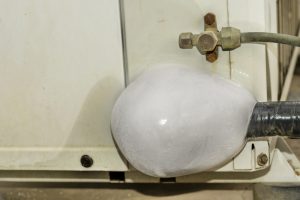Ice on your air conditioner’s coils might seem like a minor inconvenience, but it’s actually a significant issue that requires immediate attention. Frozen coils can severely impact the efficiency and longevity of your AC unit, leading to discomfort, higher energy bills, and costly repairs.
Understanding why this happens and why professional AC repair in Little Rock is the best choice, can help you maintain a comfortable and efficient home.
Why Do Coils Freeze?
Several factors can cause your AC coils to freeze. Here are the most common reasons:
1. Restricted Airflow: One of the primary causes of frozen coils is restricted airflow. Dirty air filters, blocked vents, or closed registers can impede the flow of air over the coils, causing the temperature to drop below freezing and leading to ice formation.
2. Low Refrigerant Levels: Refrigerant is essential for the cooling process. Low refrigerant levels, often due to leaks, can cause the evaporator coils to become too cold, resulting in ice buildup.
3. Thermostat Issues: A malfunctioning thermostat can cause the AC unit to run continuously, which can lead to overcooling of the coils and subsequent freezing.
4. Dirty Coils: Over time, dirt and debris can accumulate on the coils, acting as an insulator and preventing them from absorbing heat properly. This can cause the temperature to drop and ice to form.
Why Frozen Coils Are a Problem
Frozen coils are more than just a minor issue; they can have several negative consequences for your air conditioning system and your home:
1. Reduced Cooling Efficiency: Ice buildup on the coils prevents the AC from effectively absorbing heat from your home. This leads to reduced cooling efficiency and makes your AC work harder to maintain the desired temperature, increasing energy consumption and utility bills.
2. Increased Wear and Tear: When your AC works harder to cool your home, it puts additional strain on the system’s components. This can lead to increased wear and tear, shortening the lifespan of your unit and potentially causing expensive breakdowns.
3. Potential for Water Damage: As the ice melts, it can cause water to leak and pool around the AC unit. This can lead to water damage in your home, affecting floors, walls, and ceilings, and may also promote mold growth, which poses health risks.
4. Ineffective Dehumidification: Part of your AC’s job is to remove humidity from the air. Frozen coils hinder this process, leading to higher indoor humidity levels, which can create an uncomfortable living environment and encourage mold and mildew growth.
Why Professional Repairs Are Vital
While it might be tempting to try to fix frozen coils yourself, professional repairs are essential for a thorough and lasting solution. Here’s why:
A professional technician can accurately diagnose the root cause of the frozen coils. Whether it’s a refrigerant leak, airflow issue, or thermostat malfunction, a professional has the tools and expertise to identify and address the problem effectively. Also handling refrigerant and other AC components can be dangerous without the proper knowledge and equipment. Professional technicians are trained to handle these materials safely, reducing the risk of injury and further damage to your system.
Schedule an appointment with Dewees HVAC for comprehensive AC support.

